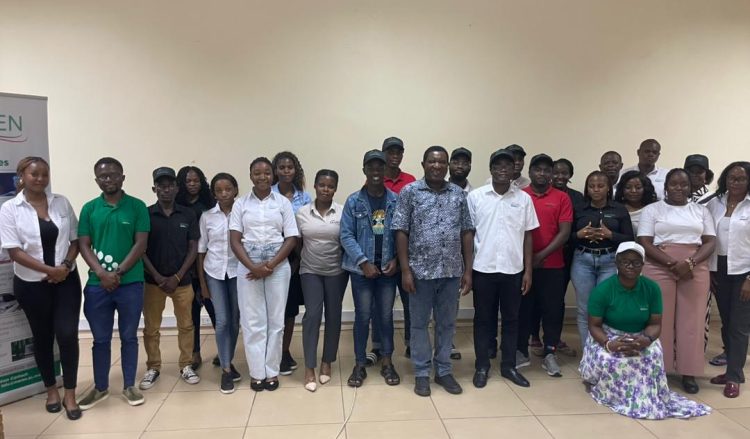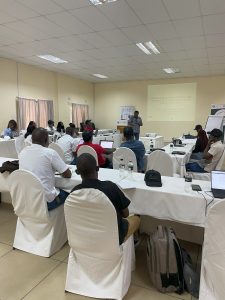
On February 12, 2025, Mr. Edward Jeke, a seasoned professional in procurement circles, delivered a presentation at Sunbird Nkopola in Mangochi as part of a team-building exercise for MAREN staff. His presentation focused on the importance of adhering to procurement procedures, offering in-depth insights into the Public Procurement and Disposal of Assets Act (PPD Act, 2017) and its relevance to MAREN’s procurement practices.
Mr. Jeke emphasized the structured nature of Malawi’s public procurement process, highlighting its role in ensuring fairness, transparency and accountability. He outlined key players in the procurement system, including the Procurement and Disposal Unit (PDU), responsible for overseeing procurement operations, and the Internal Procurement and Disposal Committee (IPDC), which makes procurement decisions. He also detailed the roles of the Requisitioning Unit, responsible for initiating procurement, and the Evaluation Team, which assesses bids and tenders. Furthermore, he explained the oversight roles of Management and the Board.
To illustrate the significance of a well-structured procurement cycle, Mr. Jeke elaborated on its step-by-step process. “The procurement process follows a structured cycle, beginning with budget planning and market appraisal, progressing through bid evaluation and contract management, and culminating in performance assessment. These stages are designed to ensure transparency and accountability in procurement decisions,” he stressed.

Delving into the legal framework, Mr. Jeke explained that the PPD Act, 2017, decentralizes procurement activities, allowing Procuring and Disposing Entities (PDEs) to operate within clearly defined legal boundaries.
“PDEs must develop annual procurement plans aligned with budgetary allocations, with open tendering as the preferred procurement method. However, alternative procurement methods may be used under specific conditions. Transparency and fairness remain fundamental principles, ensuring that contracts are awarded through competitive processes,” said Jeke.
Additionally, he cautioned that misprocurement could result in severe penalties, including fines, suspensions, or legal action against non-compliant officials.
As an institution dedicated to advancing research and education through technology, MAREN remains committed to upholding best procurement practices. By ensuring timely and efficient acquisition of goods and services, adhering to national procurement regulations, and fostering open competition among suppliers, MAREN continues to enhance fairness, transparency and accountability in procurement. These efforts align with the institution’s long-term goal of promoting sustainable and responsible procurement that supports research and education.
Subscribe To Our Newsletter
Get updates and learn from Us
More To Explore

Breaking the Campus Barrier: How Malawian Students and Researchers Are Accessing Knowledge Anywhere
For years, access to global academic resources in many Malawian universities came with clear limitations.

3 Reasons Why Malawi’s Education and Research Institutions Should Connect to MAREN
The Malawi Research and Education Network (MAREN) supports universities and research institutions across Malawi to
